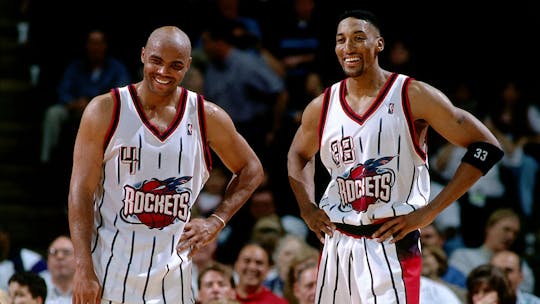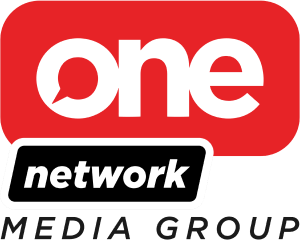It seems all the talk nowadays is about forming the next super team. In recent times, stars have either forced their teams to get superstars or leave to join other players on a different team. Å lot of these super teams have gone on to win titles, such as the Miami Heat, Los Angeles Lakers, and Golden State Warriors. However, there are a handful that failed.
Let’s take a look at some of the NBA super teams that didn’t work and failed to win a title.
Houston Rockets (1996-2000)
After winning back-to-back titles in 1994 and 1995 behind Hakeem Olajuwon and Clyde “The Glide” Drexler, the Houston Rockets failed to repeat their success in the ‘95-’96 season, losing to the Seattle Supersonics in the Western Conference Semifinals. That offseason, they added Charles Barkley who was three years removed from reaching the NBA Finals and winning MVP. Houston went on to finish second in the West but eventually lost to the Utah Jazz in the Western Conference Finals thanks to John Stockton.
The Rockets ran it back for the ‘97-’98 season, finishing eighth in their conference before getting bounced out in the first round. The following offseason, Drexler retired and was replaced by Scottie Pippen. This was the shortened lockout season and the Rockets finished fifth with a 31-19 record. But once again they were eliminated in the first round and Pippen left after that season. By the time the ‘99-’00 season rolled around, Barkley (36) and Olajuwon (37) were the only guys left. The Rockets failed to make the playoffs and Barkley retired after. Olajuwon would go on to play two more seasons—one in Houston and another in Toronto—but hung it up shortly after.
How can a team with three of the NBA’s 50 Greatest Players for four years fail to win one championship?
One factor was age. By the time Barkley joined the team, he was already 33. Both Olajuwon and Drexler were 34. They all went on to become All-Stars in their first year together but it was never the same after. Each of these players produced their numbers but the team looked visibly clunky.
Another reason was the injuries they sustained. Olajuwon missed almost half of the games in the ‘98 and ‘00 seasons. Barkley missed about 33 percent of the games he played, and this doesn't include his last year where he only played 20 games. Drexler, meanwhile, missed 25 percent of games during that stretch. It is difficult to build chemistry when players don't get ample time together.
Lastly, to say that the Western Conference was loaded during that time is an understatement. There were multiple legitimate contenders at any given point, which made it difficult to reach the finals as evidenced by the different Western Conference champions. The Jazz, Trail Blazers, Spurs, Lakers, Supersonics, and Jazz were just some of the teams that were competing during that time.
Los Angeles Lakers (2012-2013)
After failing to land Chris Paul in December 2011, the Los Angeles Lakers finally got their superstar in 2012. A four-team blockbuster trade that involved the 76ers, Magic, and Nuggets landed the Lakers three-time Defensive Player of the Year Dwight Howard. This was a trade that took a lot of planning just to make everything add up and also involved All-Stars such as Andrew Bynum, Andre Iguodala, and Nikola Vucevic.
The Lakers also acquired Steve Nash from the Suns via sign-and-trade to bolster their roster. A lineup of Nash, Howard, Kobe Bryant, Pau Gasol, and Metta World Peace (Ron Artest) sounds like a five that could cause havoc in the league and have championship aspirations. But, they only caused havoc on themselves.
Why didn’t this team work out? For one, there was clear friction within the organization, which reportedly started with Dwight and Kobe. There was a story from Jalen Rose allegedly saying that when Kobe knew D12 was headed for LA, Kobe gave him a call to chat. When Kobe put the phone down, he proceeded to say it wasn’t gonna work. Long story short, the personalities of the two biggest stars contradicted. Kobe is obsessed with winning while Dwight was more about having fun. Kobe even went out and showed Dwight what it took to win, but according to Kobe, Dwight didn’t care.
There was also a public argument between Nash and Dwight on the court of a game where Dwight thought he was free and Nash couldn’t give him the ball. There was also beef between Mike D’Antoni and Gasol after the head coach publicly called out his player.
The Lakers’ friction also came from their failure to adjust their playing styles. With two very ball-dominant players and an offense that involved a lot of pick-and-rolls, Dwight could have easily capitalized by being an elite roll threat and finisher but he preferred to post up which looked clunky and ineffective. Gasol, a great post-up player, and Nash, a great pick-and-roll user, were regulated to spot-up shooters which wasn’t their strength. Even Kobe, who’s known as a great isolation scorer, had to adapt and become a better pick-and-roll player to fit the offense. Their inability to adapt their play styles added to the friction and their lack of success.
Lastly, the team’s health didn’t help their cause. Dwight had back surgery that offseason and just didn't look right despite putting up great numbers. Kobe managed to play 78 games but tore his Achilles right before the playoffs and proceeded to miss almost the entire 2013-2014 season. Both Nash and Gasol missed games due to varying injuries. One could argue that both Nash and Kobe were past their primes during this time. In the end, Dwight left after one year. Gasol and Nash followed the season after. The one thing that did remain was the beef between Kobe Bryant and Dwight Howard.
I am not against the idea of teaming up to form super teams. When talking about the success of one’s career, the first thing that is always brought up is the number of championships they have. I agree that players have to do what’s best for them. However, they have to be smart about it. They can’t just jump and join a team or form a team that has the brightest stars. The best super teams are the ones that have players who can adjust and are on the same timeline of their careers. In the end, even if you do everything right, it still takes a lot of luck to be able to win a title and become a successful super team.
Brooklyn Nets (2013-2016)
In 2013 following a first-round exit, then Brooklyn Nets owner Mikhail Prokhorov wanted to make a big splash a year after the franchise rebranded and moved from New Jersey to Brooklyn. Already with Deron Williams, Joe Johnson, and Brook Lopez, they made a blockbuster trade with the Celtics to acquire NBA champions Kevin Garnett, Paul Pierce, and Jason Terry.
In their first season together, the Nets finished sixth in the East and pulled an upset over the third-seeded Toronto Raptors in the first round. However, that turned out to be the only playoff series they would win. That offseason, Pierce left for Washington. Halfway through the ‘14-’15 season, the Nets traded away KG and Terry. They still managed to secure the eighth seed but were sent home immediately. After that season, Deron Williams left for Dallas, and just like that, this Nets super team evaporated. Brooklyn gutted their future for a title run, and two years into it, four of their main guys were already gone.
Brooklyn became a bottom-feeder in the East, promptly trading Joe Johnson to Miami in the 2015-2016 season. By 2016, only Brook Lopez remained with the team with Boston cashing in Brooklyn’s draft picks into Jayson Tatum, Jaylen Brown, and Kyrie Irving (Boston used one pick in the trade).
Why did this perceived super team only win one playoff series in their time together? The biggest issue was age. When the trade went down, KG, Pierce, and Terry were all above 36. Joe Johnson was in his early 30s and D-Will was turning 30. Only Brook Lopez was in his early 20s. The team was old and it was evident on the court as KG, Pierce, and Terry barely kept up physically and performed poorly.
There was also poor planning on the part of Brooklyn. They rushed into making a trade without thinking of the potential consequences of their actions. They failed to understand that having three players (Williams, Johnson, and Pierce) who needed the ball to dominate was not a good fit. They quickly abandoned the project, sending almost everyone away within two years. They could have done better thinking about what kind of team they wanted to make and how it would affect them in the future.




